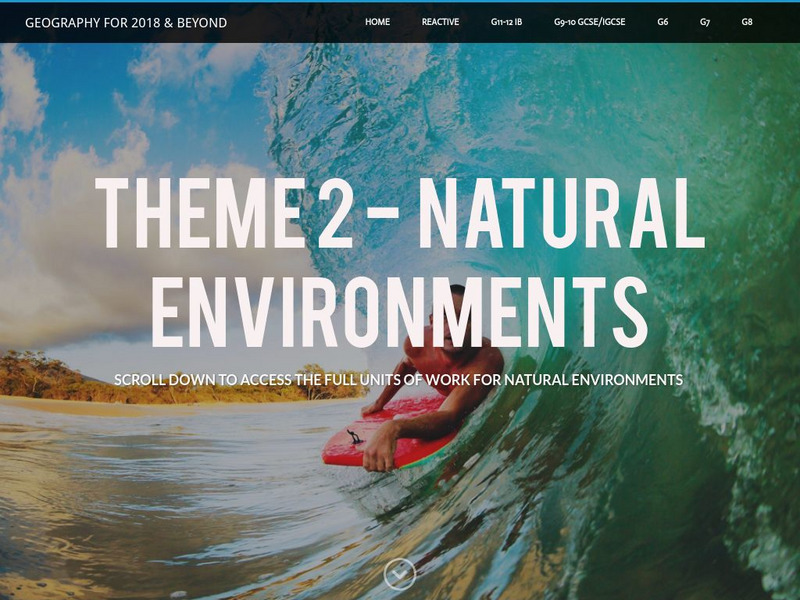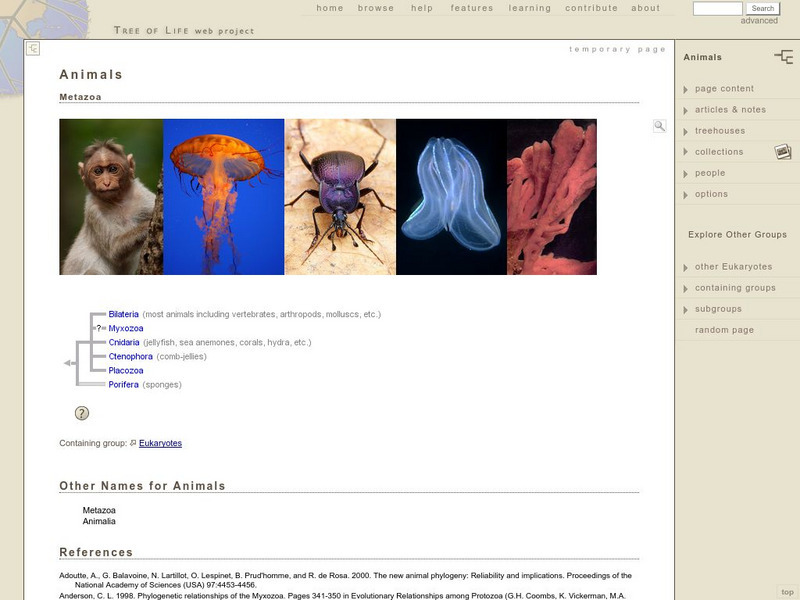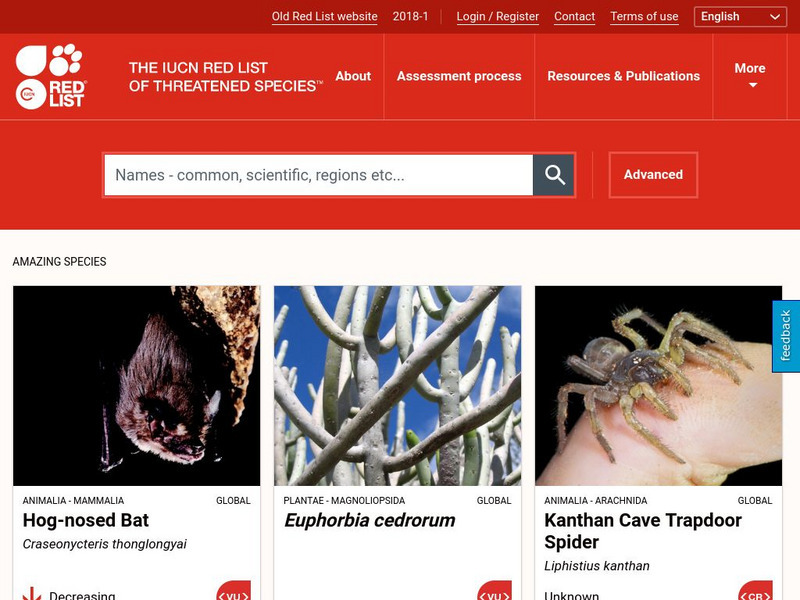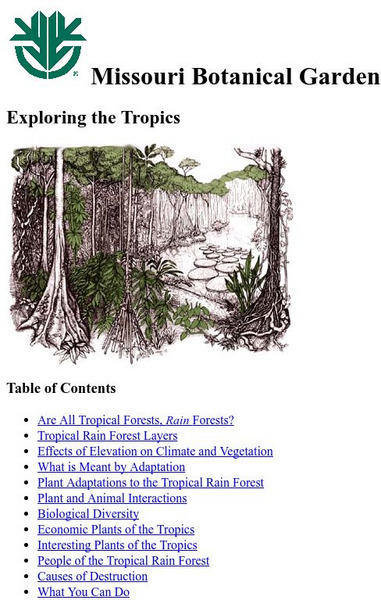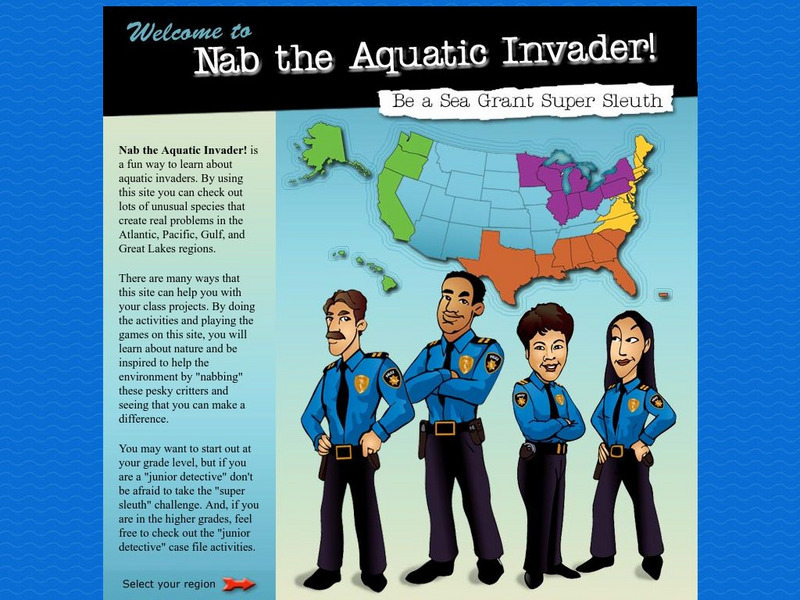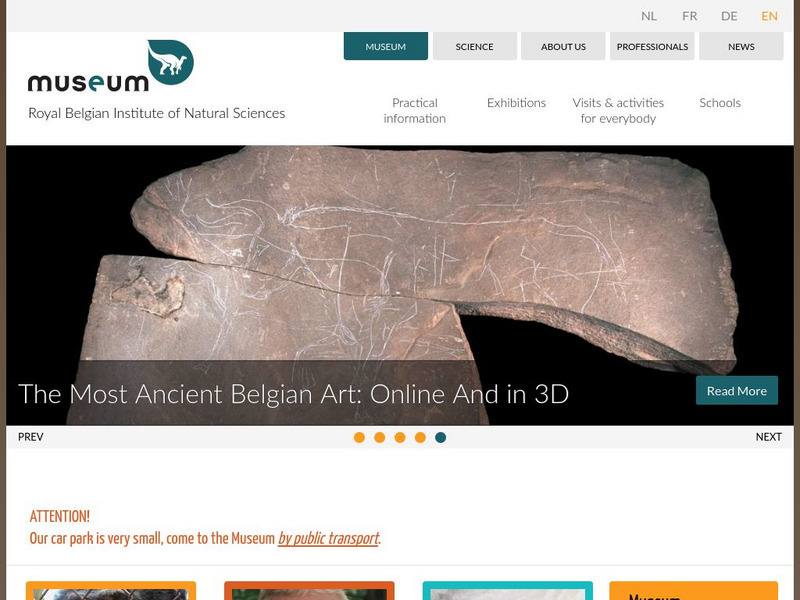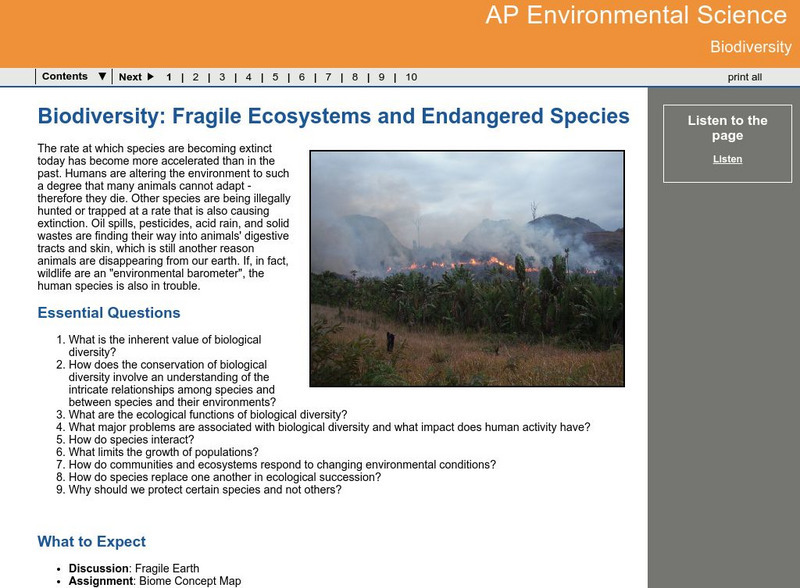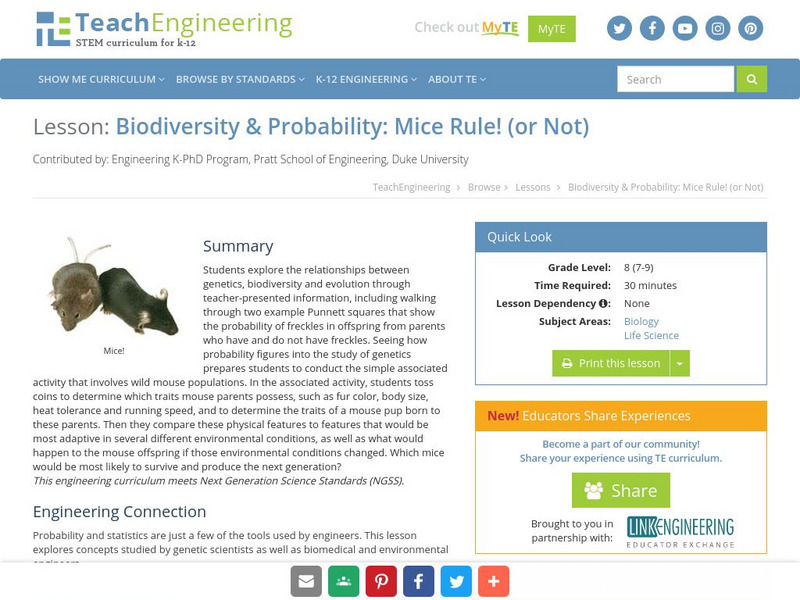Geographypods
Geographypods: Theme 2: Natural Environments
A rich collection of highly engaging learning modules on topics related to the natural environment. Covers four main areas - plate tectonics, forms and processes, weather and climate, and rainforest and desert. Within each of these,...
Encyclopedia of Earth
Encyclopedia of Earth: Biodiversity
A large collection of articles, news items, photos, slideshows, animations, and scientific reports, all related to biodiversity. Many articles on different ecosystems, e.g., deserts, grasslands, forests, etc. An excellent resource for...
Other
Biodiversity Heritage Library
The Biodiversity Heritage Library is a collaborative effort by ten major natural history institutions in the U.S. to bring together their biodiversity resources collected in the past 200 years into a single online space. You can view...
University of California
Ucmp: The World's Biomes
The University of California Museum of Paleontology hosts this site devoted to the study of the earth's biomes, which are the world's major communities, classified according to the predominant vegetation and adaptations of organisms to...
Tree of Life Project
The Tree of Life Web Project: Animals
Extensive site that contains much information about the various animal phyla. Each phyla gives photos, common examples, scientific names and references. Collection of 1630 websites about bio-diversity.
Other
Iucn: Red List of Threatened Species
Find out about endangered animals featured here from the IUCN Red List of Threatened Species. Search through thumbnails to view previous months' species of the day to learn more.
Other
Missouri Botanical Garden: Education: Exploring the Tropics
Extensive information about tropical forests, including the plants, animals, and people found there. Also covers adaptations, biodiversity, economic benefits of tropical rain forests, and threats to their survival.
Other
University of the Western Cape: Department of Biodiversity: Abiotic Components
The Department of Biodiversity at UWC presents the impact different abiotic components on plants and animals. Some factors are light, temperature, and wind.
Other
Sea Grant: Nab the Aquatic Invader
Choose a region in the United States and use your detective skills to help find the top ten organisms that are invading those areas.
Other
Illinois Department of Natural Resources: Illinois Biodiversity Basics [Pdf]
A 185-page collection of activities for learning about biodiversity in Illinois, that can easily be adapted for other places.
Other
Ny Botanical Garden: Fungal and Plant Diversity
Findings of an expedition by the New York Botanical Garden in French Guiana to investigate vegetation.
ReadWriteThink
Read Write Think: Building Word Knowledge Through Informational Websites
A lesson through which students identify, understand and work with important vocabulary words found in an online article on biodiversity. Based on the "Ten Important Words Plus" strategy that teachers can employ as part of vocabulary and...
Natural History Museum
Natural History Museum (Uk): Biodiversity
Find a wealth of scientific information on the status of biodiversity in the world today, the threats it faces, and why it is critically important to preserve it.
National Geographic
National Geographic: Marine Ecosystems and Biodiversity
In this unit students explore major marine ecosystems by locating them on maps. Students use marine examples to learn about energy transfer through food chains and food webs and then they discuss how food webs can illustrate the health...
National Geographic
National Geographic: Marine Ecosystems and Biodiversity
A collection of three lessons where students learn about abiotic factors in marine ecosystems, about marine food chains and biodiversity, and about marine food webs and trophic levels. Includes handouts, website links, and a vocabulary...
Nature Conservancy
The Nature Conservancy: Gardens Activity Guide: Habitats
In this lesson students learn how the garden provides habitat for a variety of different animal species. They make observations and collect data to determine which species inhabit the garden. They will investigate relationships among...
Other
Introduction to the Biosphere: Characteristics of the Earth's Terrestrial Biomes
From Chapter 9 of a textbook on physical geography that covers the biosphere. Important vocabulary is highlighted and linked to a glossary. It explains the characteristics of a biome, and describes the features of the eight different...
Other
Welcome to Biodiversity Hotspots
Conservation International offers this extensive look at some of earth's most vulnerable areas. Some of the most remarkably diverse places in the world also prove to be some of the most threatened. Learn more about the efforts in place...
San Diego Zoo Global
San Diego Zoo: Animals
This resource describes the most popular animals at the world-famous San Diego Zoo. Each profile gives background about a specific animal, and more information about the species.
Other
Royal Belgian Institute of Natural Sciences
This site can be viewed in 3 different languages. When a language is chosen information about the institute comes up and icons are presented for more information.
Other
Plant Watch
The Plant Watch website is designed to teach students how to record observations about plants. The site provides good information about the parts of plants and the section, "Plant Descriptions," will lead you to detailed information on...
Georgia Department of Education
Ga Virtual Learning: Ap Environmental Science: Biodiversity
Through an interactive learning module, students investigate the importance of species richness and biological diversity.
Georgia Department of Education
Ga Virtual Learning: Ap Environmental Science: Terrestrial Biomes and Land Use
How we can live sustainably on our natural resources while also preserving enough nature so these resources can be replenished represents one of the most important questions in environmental science. Through learning about terrestrial...
TeachEngineering
Teach Engineering: Mice Rule! (Or Not)
Students explore the relationships between genetics, biodiversity, and evolution through a simple activity involving hypothetical wild mouse populations. First, students toss coins to determine what traits a set of mouse parents...
